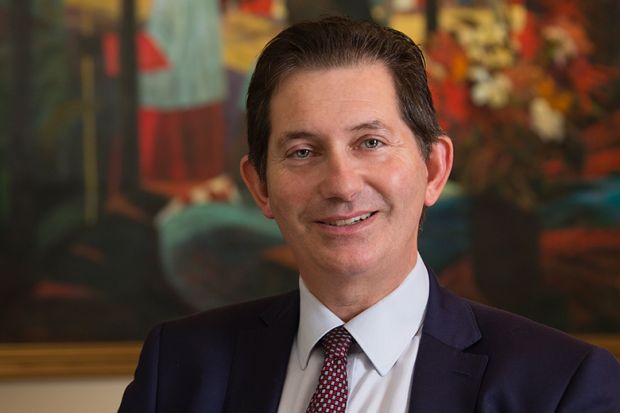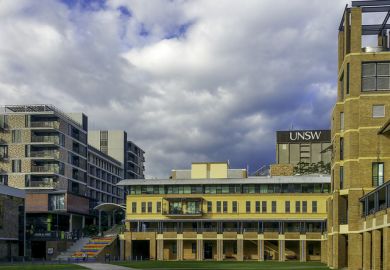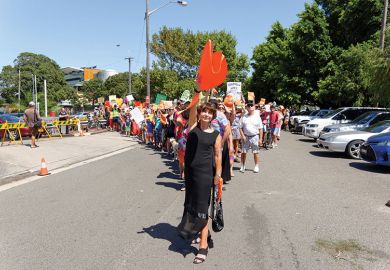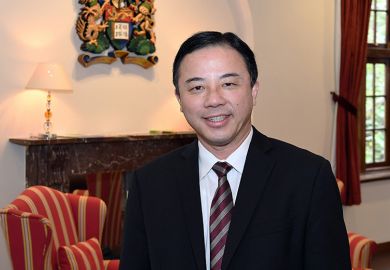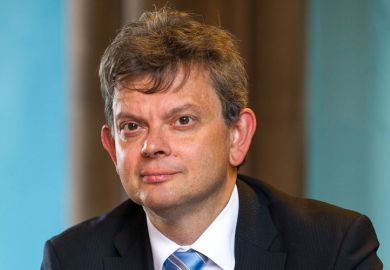UNSW Sydney vice-chancellor Ian Jacobs, who has announced his departure early next year because of “pressing family issues”, has said some good will come from the Covid-19 pandemic.
In an email to staff, the former medical dean at UCL and the University of Manchester said health problems affecting his parents and in-laws – culminating in his father’s death in July – had necessitated his return to his native UK.
He said 2020 had been a “difficult year for all of us”, requiring many to make tough choices. “These circumstances are similar to those experienced by millions during the last year and they inevitably lead to re-evaluation of longstanding plans,” he said.
He said he hoped to find a job with a British charity, non-government organisation or government department.
Professor Jacobs told Times Higher Education that he was leaving what was arguably the “best job in the world”, having planned to remain in the role at least until 2025. “It was a hard decision but it’s the right decision.”
Under his stewardship, which began in early 2015, UNSW’s budget has grown by almost 40 per cent to over A$2.4 billion (£1.3 billion). The institution has accrued around 1,000 more staff and 10,000 additional students.
But the pandemic hit hard in a university that derives some 36 per cent of its income from international students’ fees. Last year it revealed plans to shed almost 500 permanent positions and resorted to forced redundancies after voluntary measures achieved only about half of the cuts.
The university also announced that it would relinquish senior leadership positions, overhaul its eight faculties and contract its eight divisions into six. But Professor Jacobs said Covid-19 would also have positive effects.
“The pandemic has focused people’s minds on not only their personal lives but also their professional work,” he said. “There were major changes under way in the sector in terms of our attitude to online learning, lifelong learning [and providing] opportunities in an equitable way across all different parts of society. Those things were happening anyway. The pandemic will accelerate some of them.”
Professor Jacobs has continued his involvement in two longstanding projects in other parts of the world while leading Australia’s fifth biggest university. One is the Uganda Women’s Health Initiative, which he established in 2005.
He has cultivated links with Gulu University in northern Uganda, with UNSW academics and professional staff contributing to its programmes and its students visiting Sydney. More recently, UNSW students launched the African STEM Education Initiative to help Ugandan graduates learn entrepreneurial skills and set up businesses.
The other project involves Professor Jacobs’ 35-year quest to find a screening test for ovarian cancer, a major killer of women in the developed world. For 16 years he served as chief investigator with the UK Familial Ovarian Cancer Screening Study, a randomised control trial involving 200,000 British women, and he has continued as co-investigator since 2016.
He said the study was “about to come to its end point”, reporting in the next few months. “We’ll know whether ovarian cancer screening can save lives.”
Register to continue
Why register?
- Registration is free and only takes a moment
- Once registered, you can read 3 articles a month
- Sign up for our newsletter
Subscribe
Or subscribe for unlimited access to:
- Unlimited access to news, views, insights & reviews
- Digital editions
- Digital access to THE’s university and college rankings analysis
Already registered or a current subscriber? Login
